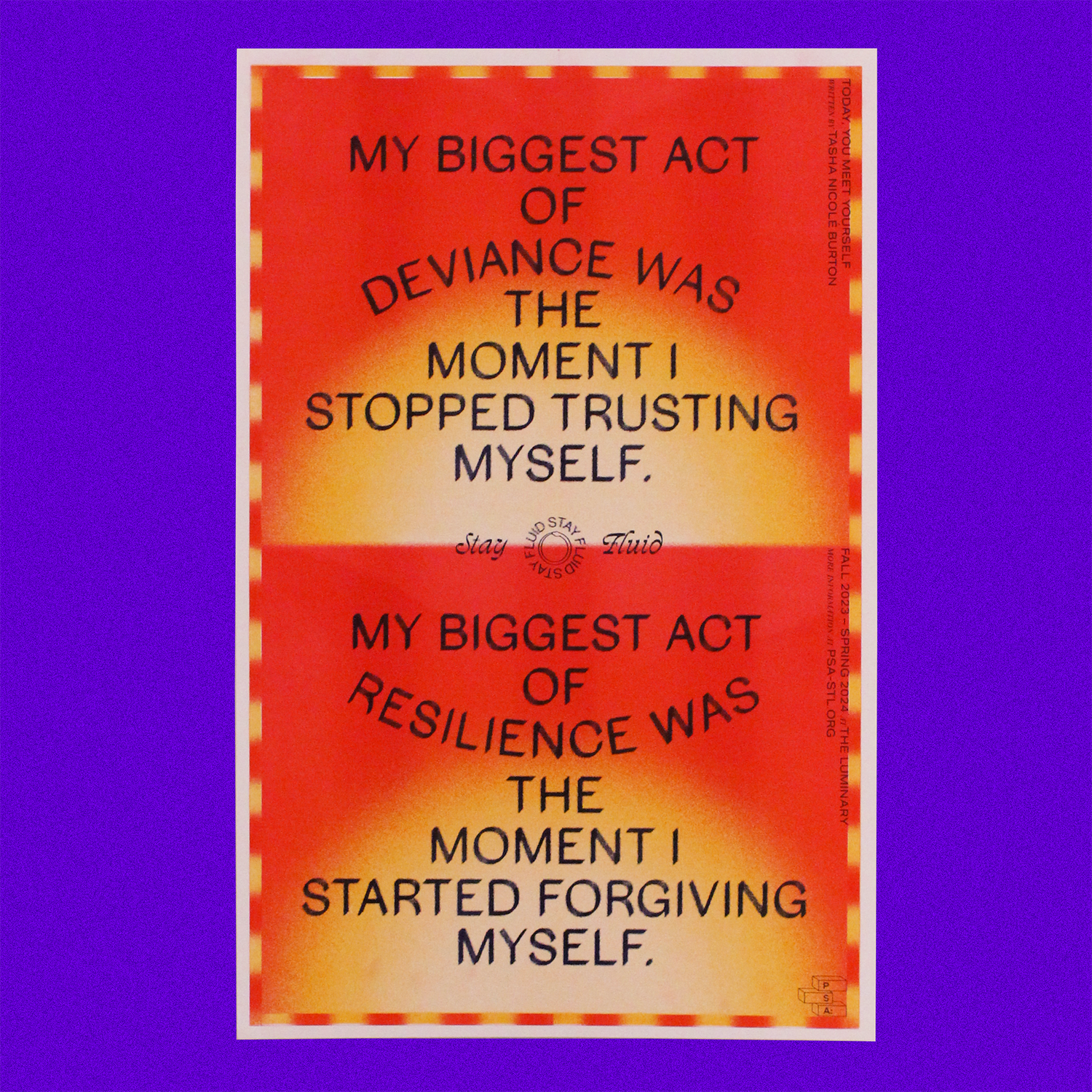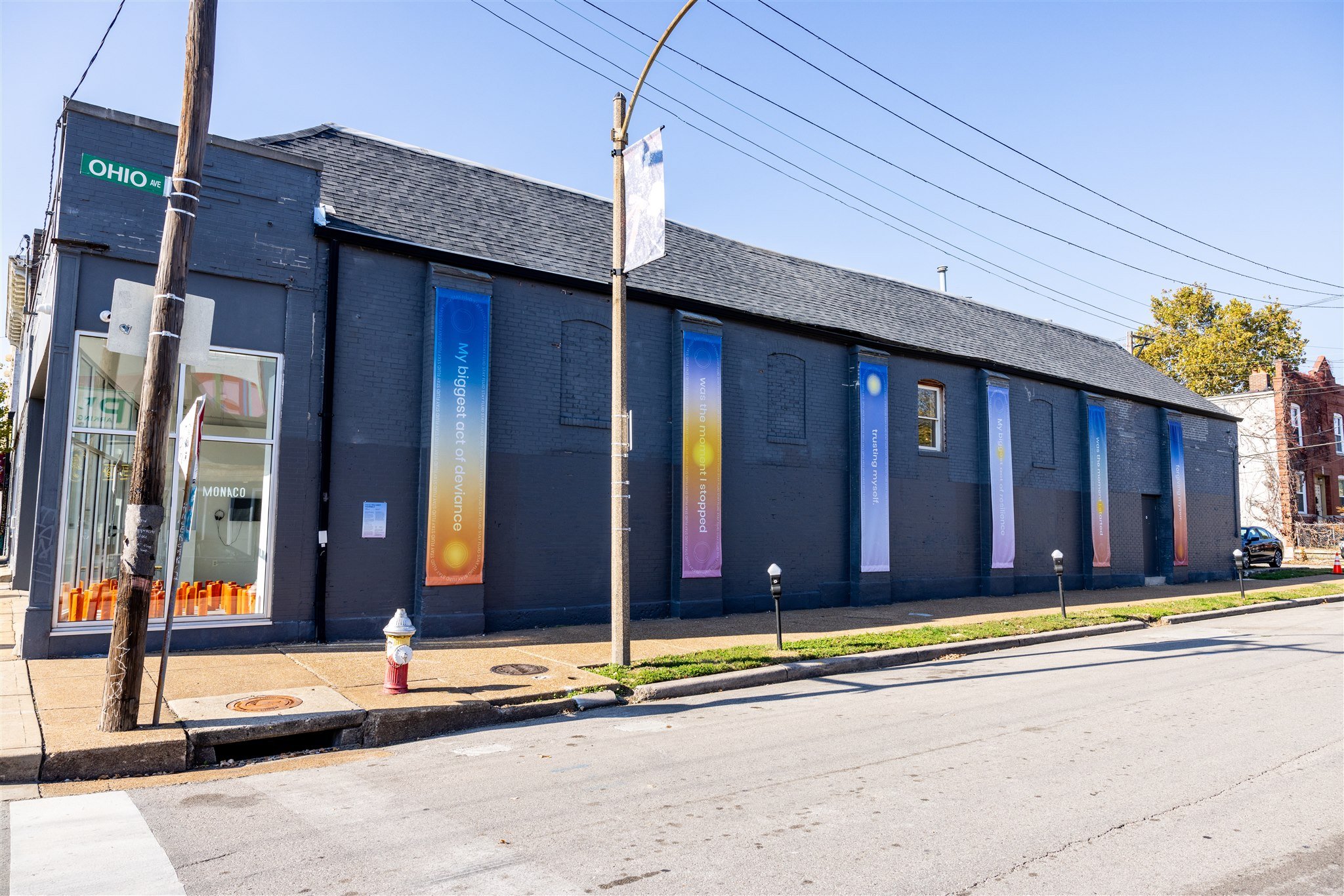a public work commissioned by The Luminary in collaboration with PSA: STL (Oct. 2023-Apr 2024). Broadside risograph prints are available here.
My biggest act of deviance was the moment I stopped trusting myself. My biggest act of resilience was the moment I started forgiving myself.
Stay fluid.
Deviant behavior, as defined by society, is an immoral act that can cause harm to others. It is often a reactionary moniker assigned to someone upon hearing about or witnessing the deviant act. The "act" can hurt others or the person exhibiting the behavior. When looking at the history of the word deviant, we find the terms deviate and deviation. A deviation is simply an action that rejects or steers away from what we consider “normal” or baseline.
Rarely do we self-ascribe ourselves as deviant, as the term can carry serious consequences. Some deviants are publicly shamed, imprisoned, or outcast from society. These consequences lack a reward and deter us from committing an offense. What happens when we consciously or subconsciously think or feel something that could cause harm to ourselves, and what types of repercussions lie ahead? To probe this further, consider the conditions under which you would call yourself a deviant. Under which circumstances would I call myself one? I thought about the actions and thoughts that can passively occur in our day-to-day state of being that could fit this characterization.
What does it mean each time we doubt ourselves?
“I studied for two weeks and did well on my quizzes, but I don’t think I will pass the exam.”
What does it mean each time we invalidate or trivialize our feelings?
“I’m having a tough week, but I should be glad because others are experiencing a more difficult time.”
What is it called when we reject the good things about ourselves because we don’t believe they are true?
“Everyone says I am good at _____, but they say that to be nice.”
The examples above are globally experienced and have been thought about by almost everyone regardless of age or cultural background. These are false thoughts that we make true, but it is more comfortable to be right than to be proven wrong. This thinking can lead to feelings of sadness, rejection, and anxiety. Our pride gets in the way, and we settle into these feelings without giving ourselves a chance. When a lack of confidence is present, so is the lack of trust. Learning to trust yourself is an ever-evolving journey and practice. Licensed counselors Linda and Charlie Bloom state that self-trust is not a natural occurrence. They continue to say that we often wish to strengthen trust in relationships with each other but not strengthen this within ourselves. The Blooms believe that to get to a space where we can value the internal resources that our self-trust provides requires making the same mistake multiple times. To illustrate this repetitive process, the Ouroboros, a symbol depicted as a serpent eating itself, is pictured with the message.
The Ouroboros' overall symbolism portrays cycles: life and death, time, and collective consciousness. Regarding deviance, trust, and forgiveness, visualize the serpent consuming the negative thoughts and behaviors to birth a new form of thinking. Take the opportunity to acknowledge that a small yet mighty act of deviance occurred. Fluidity asks that we resiliently forge through the process to achieve grace, which brings us to self-trust. When this act of deviance occurs again, we move through it much quicker, making it easier to find forgiveness.

